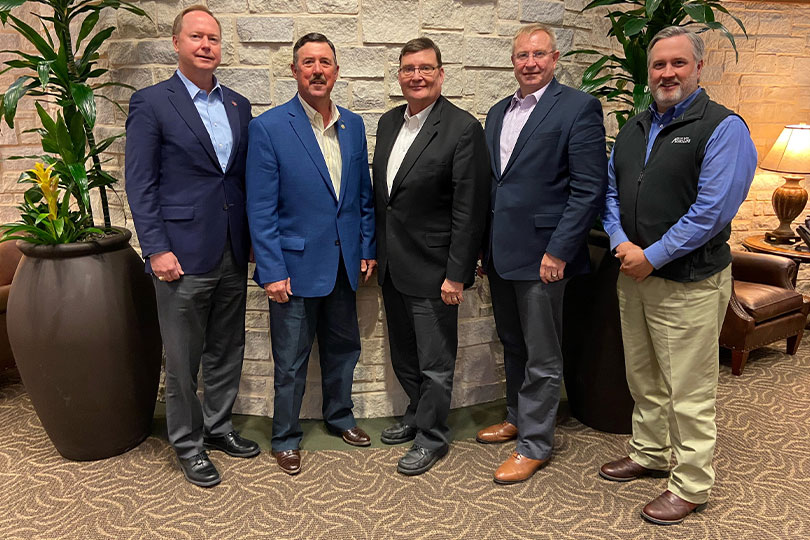The new directors of Texas A&M AgriLife Research and the Texas A&M AgriLife Extension Service are excited about the opportunities ahead and focused on goals for their first year leading their respective agencies.
Dr. Cliff Lamb began his work as acting director of Texas A&M AgriLife Research on Jan. 1.
Dr. Rick Avery’s appointment as acting director of the Texas A&M AgriLife Extension Service was effective Jan. 18.
Lamb, who came to Texas A&M in 2017, previously served as the head of the Department of Animal Science. He formerly served as the assistant director and professor at the University of Florida-North Florida Research and Education Center in Marianna, Fla.
Lamb grew up on a cattle operation in Africa. His expertise is beef cattle management with a special emphasis on reproductive physiology.
“Some of the things that we know are important to us are trying to figure out how to improve our infrastructure and capacity to continue to do work that’s important to the commodity entities in the state. When I talk about the commodities of agriculture, we’re talking about the livestock and the crop side but also vegetables and natural resources,” said Lamb in an interview with the Texas Farm Bureau (TFB) Radio Network following a briefing with TFB leaders and professional staff. “We want to continue to develop our infrastructure to be able to move those entities forward.”
Lamb said research is vital to Texas agriculture’s success.
“It’s significant. If you take, for example, issues that we might have with say, water. What we do is we generate, and we try and figure out ways in which we can reduce our impact on the water, or we produce crops that might require less water to grow, or we do research that might have an impact on things such as reduction in the need for pesticides,” Lamb said. “We also do a lot of work in terms of trying to figure out how do we capture carbon, or how do we have opportunities to mitigate things that might be associated with climate change.”
Avery was previously the deputy director of the Brazos Valley Council of Governments. He has a long track record in government and governmental relations. Avery worked with the Texas Association of Counties from 2014-2020 after spending two decades with the Texas A&M AgriLife Extension Service, the last 10 years as Director of the V. G. Young Institute of County Government.
Avery said he’s proud of the agency’s network of agents and the network that supports the agents’ efforts in areas including agricultural and natural resources.
“I’m getting my arms wrapped around where we are as an agency. I’d previously been with the agency and recently returned. But what I’m seeing, one, is just that continued work that we do in communities around the state. But we have to have a sustainable workforce to make sure we maintain and even increase our capacity to serve those communities,” said Avery in an interview with the TFB Radio Network following the briefing with TFB. “I’m looking very closely at how, in this current environment and labor environment, that we are making sure that we’re staying on the top of our game with our employees so that we’re better able to serve the citizens of the state.”
Avery said someone’s relationship with AgriLife Extension often begins at the local county office.
“You know, I’m from a small town, and it seems like the first person I ever met who wasn’t from my town was the extension agent, the agricultural extension agent in Fort Bend County, and it had a lasting impression on me. And I think that’s a lot of the entry into the area of extension that particularly rural families have,” he said.
Texas A&M AgriLife Research is the state’s premier research agency in agriculture, natural resources and life sciences. It features 13 centers and faculty in 15 academic departments, a portfolio of more than 550 projects and more than $280 million in annual research expenditures.
The Texas A&M AgriLife Extension Service provides programs, tools and resources on a local and statewide level that teach people improved agriculture and food production, advanced health practices, environmental protection, economic and youth programs. With 250 county offices serving Texans in all 254 counties, county Extension agents serve families, youth, communities and businesses throughout the state.

